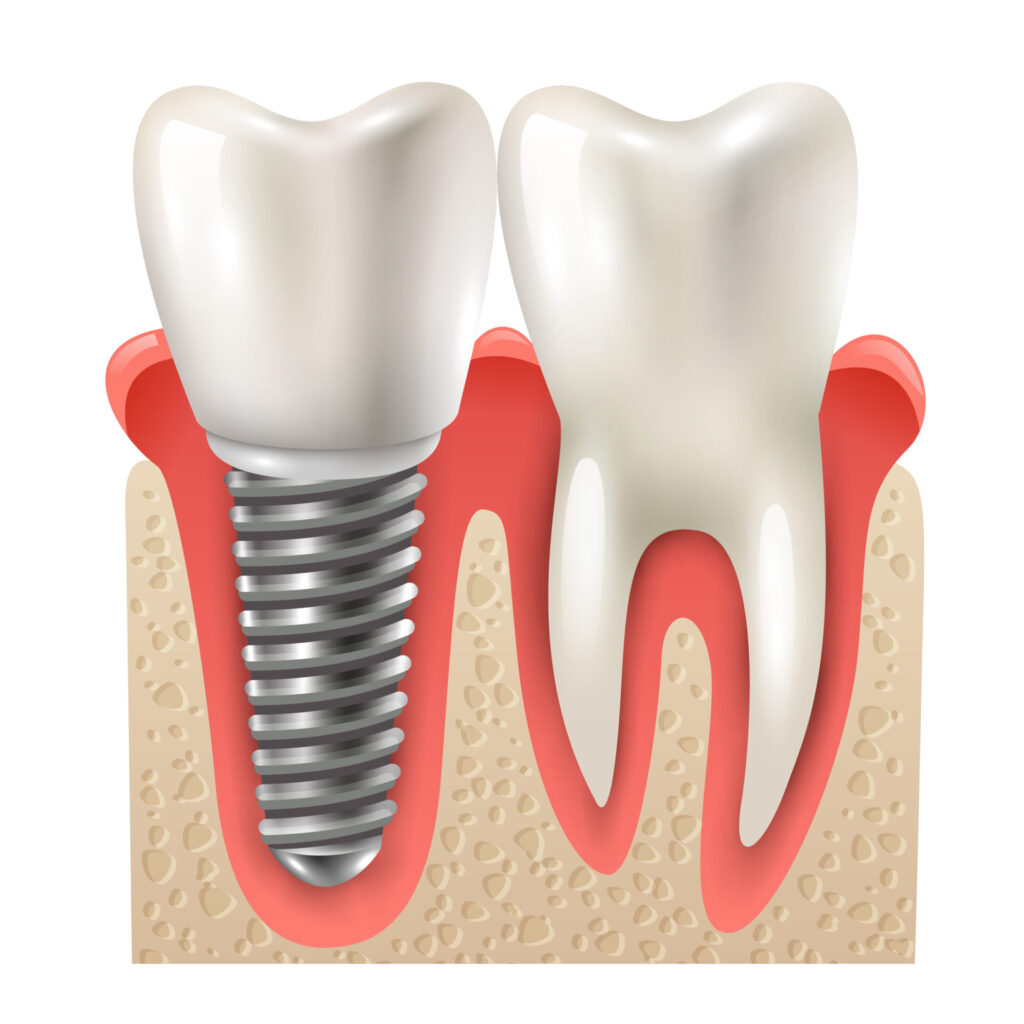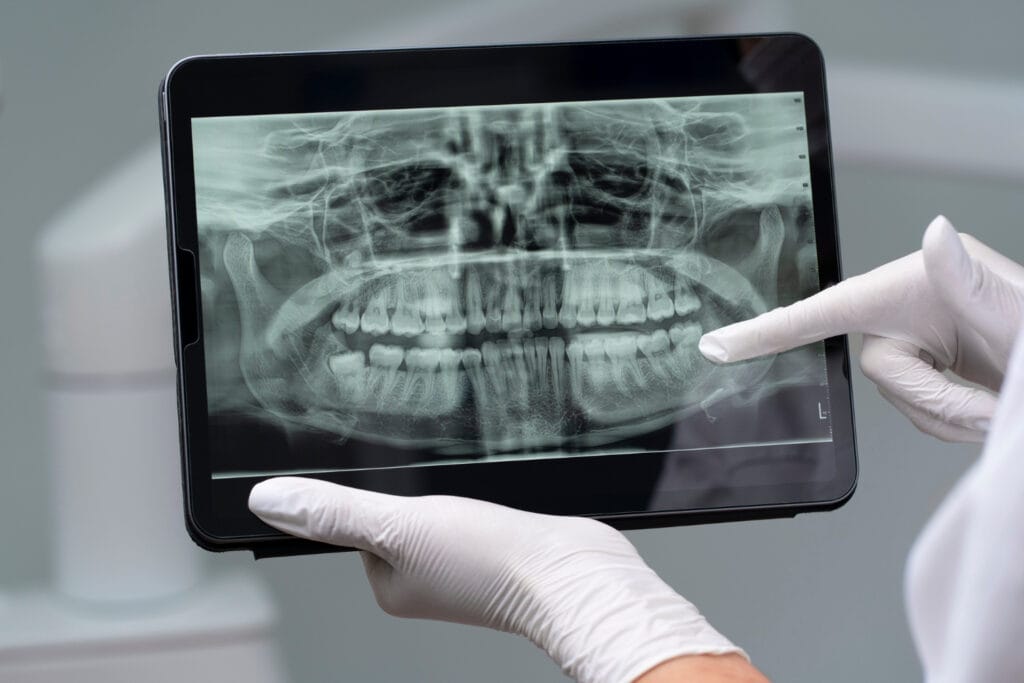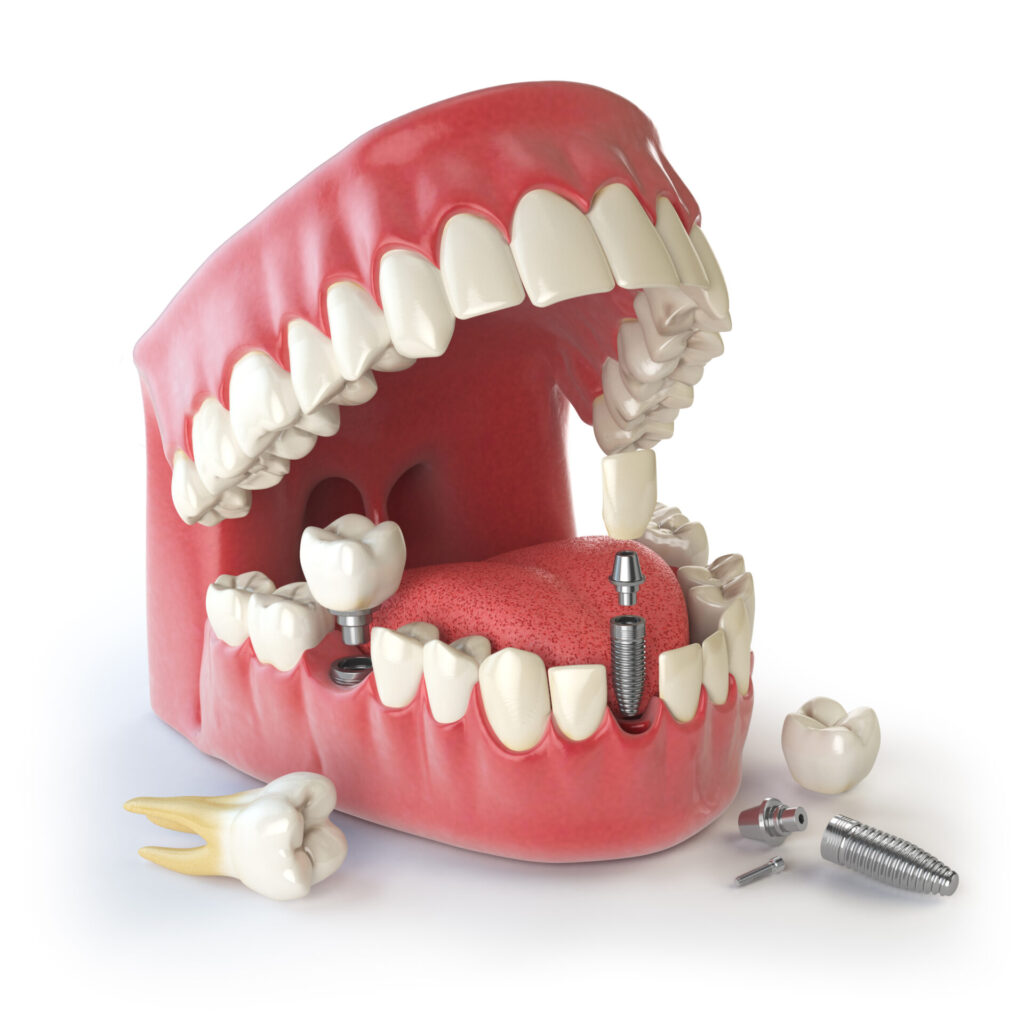Dental Implants In Palm Beach


Regain Your Smile with Dental Implants Palm Beach
At Palm Beach Dental, we understand how inhibiting tooth loss can be on your lifestyle. Not only may it affect your ability to eat and speak with confidence, but it may also make you avoid smiling. Our team has a common goal – for all our patients to have healthy smiles they love. If you’re suffering from tooth loss, dental implants could be the solution for you.
Several factors may lead to tooth loss. These may include your oral health, your age or an injury sustained during an accident, for example. Missing teeth can impact your self-esteem, but they can also affect your oral health. Luckily, you don’t have to live with gaps in your smile thanks to dental implants.
Dental implants utilise small titanium screws that get inserted into your jaw bone. By allowing the implants to fuse with your jawbone, you are left with a strong and functional tooth root alternative. A dental crown is then placed over the implant to complete the treatment.
Do you have one or more missing or severely damaged teeth? Our dentist may recommend dental implants as the most suitable treatment for you. Dental implants can also be used to support multiple teeth with an implant-supported bridge or to support dentures.
Our experienced dentists work with you to perfect the design of your prosthetic teeth that will attach to your implants. Dental implants involve meticulous planning based on complementing your face, mouth and natural teeth.
We are dedicated to providing you with dental implants of the highest quality as well as an exceptional patient experience. Our knowledgeable team can help you achieve a smile that looks, feels and performs exactly like a real one!
Our Dental Implant Process
The exact process for getting dental implants may vary from patient to patient. Generally, it takes place out over multiple appointments. You will need time for recovery between some of these appointments. So, you can expect the process to take time and involve several steps.
Dental implants can be life-changing. Patients tend to agree that the complex process is worth the massive impact dental implants have had on the quality of their lives.
Step One
Your Dentist will conduct a complimentary examination and will take x-rays of your mouth. This will help them assess the current condition of your teeth and gums to determine your eligibility for dental implants. You may need to have a tooth removed to make space for your implants or bone grafting to create enough support for them. If you do, these procedures will take place in your initial appointments.
Step Two
The next stage of the process involves surgically inserting your dental implants. Your dentist will place the titanium screws into your jawbone, below your gum line. These titanium screws will eventually be the anchor for your prosthetic teeth. Post implant insertion, you will need a period of a few months for recovery. During this period, your jawbone tissue will grow up to the implant, fusing with it in a process called osseo-integration. Your dentist may provide you with temporary dentures to help you chew, talk and smile in the interim.
Step Three
Once you are recovered, it’s time for your custom-designed false teeth to get attached to your dental implants. Your dentist will ensure the perfect fit. This part of the process can sometimes take a few appointments as you adjust to the new teeth in your mouth.


The Benefits of Dental Implants
Dental implants provide a wide array of benefits. As such, they are one of the most modern-day solutions for missing teeth.
Here are some of the major benefits dental implants can offer you:
- Exceptionally natural-looking.
- They function just as a natural tooth would making chewing and talking easy
- No removing needed, as with dentures.
- Dental implants eventually become a part of you, offering you optimal comfort.
- Boosted confidence with improved oral health and a restored smile.
- Bone loss prevention for your jaw which can happen as a result of tooth loss.
- Prevention of hollowed/collapsed cheeks that can happen as a result of tooth loss.
- Possible reduction of the risk of gum recession.
- No need for interfering with healthy surrounding teeth (unlike with dental bridges).
- No special maintenance needs outside of your normal dental hygiene practices.
Accepting all Health Funds and Veterans Affairs


